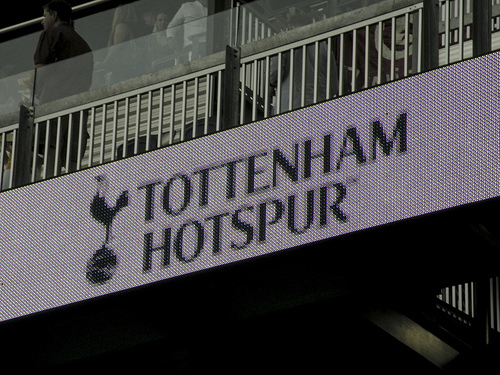The Y-word: where does society stand?
Regular Saturday afternoons at White Hart Lane usually involve Andre Villas-Boas wildly gesticulating in an immaculate club suit, inevitable 90-minute despair when a fragile 1-0 lead is squandered, and a chorus – thousands strong – of that effervescent chant: ‘Yid army’!
Most Spurs fans sing along without any understanding of the political significance of this chant. To them, it’s as great a part of the club’s history as the 1961 cup double, or David Ginola’s L’Oreal locks. However, that could all be about to change.
Comedian David Baddiel has declared the use of the word ‘Yid’ as a ‘race-hate’ term. He has criticised Spurs fans for propagating a traditionally derogatory insult used against Jewish people, and believes the ‘Y’ word should be seen as synonymous with the ‘N’ word. He’s stated that ‘it’s doubtful that more than 5% of those in the ground at home games are actual Jews’, hence rejecting claims that Jewish Spurs fans have ‘reappropriated’ the term.
Quite how he arrived at this 5% figure is unclear. I find it doubtful he surveyed all 36,230 fans at the Lane, if only because they would have all been too busy singing insulting songs about Arsene Wenger and bemoaning Kyle Walker’s technical ability at right-back to really care.
Those fans who do turn their attention to the matter predictably have problems with his argument. Many have pointed towards the fact that Baddiel seems to ignore the issue of context: Tottenham supporters claim that the word is never used in an insulting fashion, rather it is a word symbolizing union, essentially a call-to-arms.
I know that, upon my next trip to the Lane, when I stand amongst 30,000 fans screaming out that chant, I will join in with them
Support for their cause came in the unlikely shape of David Cameron, who asked people to think of the ‘mens rea’ of the topic, before elaborating on the wider contextual issue at hand. No, I don’t really know what ‘mens rea’ means either. So I decided to hunt around campus for a football fan to quiz on the topic. And it seemed that, perhaps for the first time ever, a student was willing to agree with Cameron. Maths undergraduate Elliott Bewley told me that ‘for most Tottenham supporters, it’s just a way of identifying with the club’, before adding ‘I reckon that there are lots of people who, if you asked them what Yid meant, they would reply with ‘Tottenham supporter’.
Elliott obviously spoke from a football perspective. I had a chat with Savannah Hersov, of Warwick’s Jewish-Israeli society, to hear a more political angle, removed from the melodrama of the terraces. ‘I personally think that the chanting should be stopped but I don’t think that realistically a ban can easily be enforced’, she told me. ‘Using racial slurs, regardless of intention, is unnecessary and instead Spurs fans should find a new chant that embraces their fanbase and team in the 21st century’.
These widely varying opinions, both on campus and beyond, demonstrate the delicacy of the issue. Now for the catch: I’m a Spurs fan, and have joined in with those particular chants since my first match at the age of seven. Alas; standing back and considering the debate in its wider historical context has made me adjust my opinions.
Spurs fans undoubtedly, in my mind, reappropriated the word ‘Yid’, in order to deflect anti-semitic use. This should be praised. But when members of the same community that we once defended now object our usage of the term, isn’t it time to stop?
But I know that, upon my next trip to the Lane, when I stand amongst 30,000 fans screaming out that chant, I will join in with them. Perhaps it’s there that the problem lies.

Comments